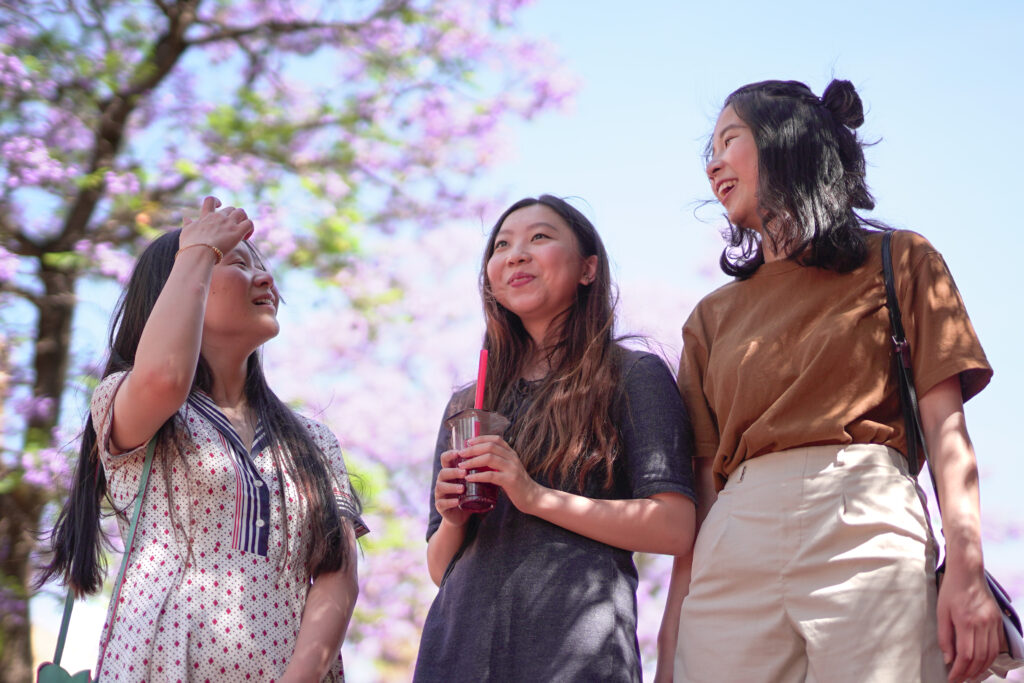When students first enrol in university, they often imagine an exciting journey filled with academic growth and opportunities to connect with like-minded peers.
However, for many, this experience isn’t always exactly as expected, as explored in a new piece published by the Sydney Morning Herald.
According to the Quality Indicators for Learning and Teaching 2023 survey, half of undergraduate students struggle with making and maintaining social connections throughout their studies. This challenge is especially prominent for international students, who may be adjusting to new cultural and social environments.
Let’s take a look at some of the main obstacles contributing to these struggles and explore ways to overcome them.
1. The impact of online learning
Since the COVID-19 pandemic, many universities have moved a significant portion of their courses online. While this offers flexibility and greater accessibility for many students, it also limits opportunities to interact with classmates in person. Being physically present on campus not only facilitates learning but also nurtures social interactions, something that’s often harder to achieve in a virtual setting.
If your university offers a hybrid model (part online, part on campus), try to attend in-person sessions whenever possible to increase your chances of connecting with fellow students.
2. The cost of living crisis
According to Emeritus Professor David Geelan from the University of Notre Dame, the cost of living crisis is also a large part of why he’s seen students struggling to make connections at university.
According to him, in past decades, students could survive reasonably comfortably on government study payments and didn’t have to work part-time (or sometimes even full-time) to make ends meet. This meant they could spend more time on campus getting to know their peers before or after class, and getting involved in extra-curricular activities. Unfortunately, now it’s often a case of attending a lecture and then racing back off to work.
3. Limited engagement in tutorials
While most tutors are experts in their fields, not all of them are trained in effective teaching methods. Some students may find that tutorials (small group classes or seminars) aren’t particularly engaging, making it harder to connect with both their tutors and classmates. This can contribute to feelings of isolation, especially for international students who may still be learning to navigate the academic environment in a new country.
Don’t hesitate to reach out to your tutors or lecturers if you’re struggling to connect in tutorials. Asking questions and participating actively can help you build relationships with both your teachers and classmates.
Courses that foster friendships
Some courses naturally offer more opportunities for students to build lasting friendships. Fixed cohort programs, such as medicine or pharmacy, often have students progressing through the same units and placements together. This consistent structure encourages peer bonding, as students spend significant time with one another both in and outside of class.
If you’re enrolled in a fixed cohort program, take advantage of these built-in opportunities to interact with your peers.
Courses with fewer social opportunities
On the other hand, more open degree programs, like those in arts, education, or humanities, often allow students to choose from a wide range of units and electives. While this flexibility can be appealing academically, it also means that students may only see the same classmates a few times throughout their entire degree. As a result, students in these programs often report lower levels of social satisfaction.
If you’re studying a more open degree, try to attend social events or connect with others outside of class. University clubs and societies are great ways to meet people from different disciplines while still forming meaningful connections with like-minded peers
Improving social connections at university
In response to the isolation many students faced during the pandemic, many universities have been actively working to improve social connections. Initiatives like peer-to-peer study groups and student mentoring programs aim to build a more inclusive, supportive environment.
- Western Sydney University offers several programs ranging from peer mentor groups to English conversation clubs, all designed to help international students build more meaningful connections while studying.
- Federation University is working towards its online classes becoming a space where students can experience real connection, similar to a face-to-face environment. By keeping their classes small, students can better connect with their peers and chat with their teachers.
Many universities, such as Deakin, offer programs specifically designed to help international students connect with their peers, navigate their new home and feel comfortable and supported.





